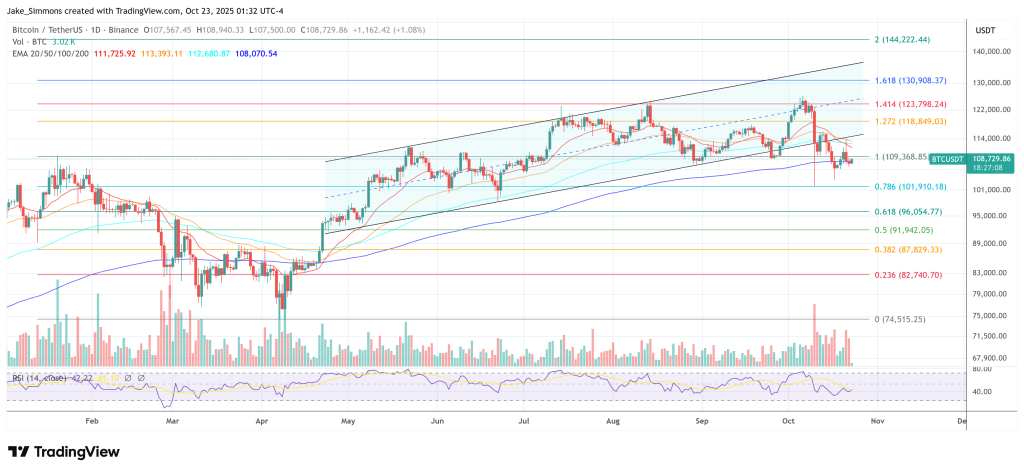In the grand theater of modern discourse, Tucker Carlson has once again summoned the specter of conspiracy, this time casting his gaze upon the enigmatic realm of Bitcoin 🕵️♂️💸. Before an audience of restless souls yearning for certainty in an uncertain age, he posited that the digital currency’s origins lie not in the anarchic dreams of cypherpunks but in the shadowed corridors of the CIA-a claim as bold as it is unprovable, much like the identity of Satoshi Nakamoto himself, that ghostly architect whose absence haunts the blockchain like a Russian winter 🧊.
The Illusion of Privacy: A Tragedy in Pseudonymity
“I cherish the notion of Bitcoin,” Carlson intoned, his voice heavy with the weight of moral conviction, “for it whispers of financial autonomy, a fortress against the prying eyes of the state.” Yet here lies the rub: Bitcoin, that most transparent of ledgers, records every transaction in indelible ink, visible to all yet understood by few-a paradox that would make Dostoevsky himself clutch his chest in existential dread 🤯. “To be tracked,” he lamented, “is to be enslaved,” a sentiment echoing Tolstoy’s own musings on the chains of societal conformity.
But alas, the modern world is a panopticon of its own making. Digital currencies, Carlson warned, are but tools of “totalitarian control,” where one’s right to exist economically could be revoked with a keystroke 🖥️🛑. One might imagine a dystopian future where even the purchase of bread requires state approval-a Kafkaesque ballet of compliance, where the currency itself becomes a jailer.
Satoshi: The Unseen Puppeteer or Urban Legend?
And what of Satoshi Nakamoto, that mythical figure whose 72 coins could topple markets? Carlson, ever the skeptic, dismissed the mystery as a house of cards. “A man who does not exist, yet holds billions in digital gold,” he mused, his tone dripping with the sarcasm of a man who’d tasted too much history. “Surely, this is the work of the CIA-a bureaucracy that thrives on such riddles.” One could almost hear the ghost of Aleksandr Solzhenitsyn chuckling at the irony.
Yet Carlson’s true disdain lies not in the code but in the cult of crypto itself-a faith built on the hope that “young Americans, those noble souls burdened by the yoke of modernity,” might find salvation in an asset as volatile as the stock market 📈😵. “Pray for them,” he urged, though his tone suggested a man who’d seen too many revolutions devour their own children.
Gold: The Timeless Refuge of the Cautious
“I am a gold buyer,” Carlson declared, with the smug finality of a man who’d discovered fire 🔥. “It was good enough for the Phoenicians, and thus it is good enough for me.” Here, the humor writes itself: a man railing against the surveillance state while clutching a rock, as if the IRS wouldn’t simply melt it down and tax the atoms. Yet Tolstoy, ever the agrarian traditionalist, might nod in approval-land and gold, the only true currencies in a world of fleeting illusions.
As the crowd murmured, Carlson delivered his coup de grâce: “Don’t invest in what you cannot fathom.” A noble principle, unless one considers that he also likened Bitcoin to “a scam orchestrated by financiers and their political lapdogs”-a phrase so dripping with establishment paranoia it could’ve been penned by a 19th-century reactionary nobleman. 🤭

At press time, Bitcoin traded at $108,729-a price that would make both Carlson’s CIA and Tolstoy’s anarchists roll their eyes heavenward. 🙄
Read More
- TRUMP PREDICTION. TRUMP cryptocurrency
- Gold Rate Forecast
- USD CNY PREDICTION
- Brent Oil Forecast
- Bitcoin Takes a Nosedive, Heads for Uplift? 😱📈
- Crypto Chaos: How Biden’s “Operation Choke Point 2.0” Left Crypto High and Dry!
- Is Dogwifhat’s $1.15 Dream Still Alive? 🐶💰
- Larry David on Pakistan & Kyrgyzstan’s Crypto Love Affair 🤦♂️
- XRP Staking: A Tale of Tension and Tokens 🚀
- Cristiano Ronaldo’s Meme Coin: A Scandalous 15-Minute Financial Farce 🤡💸
2025-10-23 17:39